| Article ID | Journal | Published Year | Pages | File Type |
|---|---|---|---|---|
| 2012361 | Pharmacological Reports | 2009 | 9 Pages |
Recent studies show that administration of a non-competitive NMDA receptor antagonist, amantadine (AMA), potentiates the action of antidepressant drugs. Since antidepressants may modulate functioning of the immune system and activation of a pro-inflammatory response in depressive disorders is frequently reported, the aim of the present study was to examine whether a combined administration of AMA and the antidepressant, fluoxetine (FLU), to rats subsequently subjected to a forced swimming test (FST) modifies the parameters of macrophage activity, directly related to their immunomodulatory functions, i.e., arginase (ARG) activity and synthesis of nitric oxide (NO). We found that 10 mg/kg AMA and 10 mg/kg FLU, ineffective in FST for antidepressant-like activity when administered alone, increased the ARG/NO ratio in macrophages when administered concomitantly. This effect was accompanied by a decrease of cellular adherence. Concurrently, the basal metabolic activity of the cells measured with reduction of resazurin, and intracellular host defense as assessed by a synthesis of superoxide anion, were not affected by such antidepressive treatment. Our data indicate that co-administration of AMAand FLU decreases the pro-inflammatory properties of macrophages and causes a redirection of immune response toward anti-inflammatory activity, as one can anticipate in the case of an effective antidepressive treatment.
